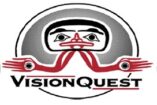Principles
Serve All People
[expand title=”More…”]While VisionQuest serves all people who are looking for recovery, we are especially attuned to the needs of the following:
– Those entrenched in the justice system
– Low income
– First Nations
The length of our six-month program comes from a neuro-psychological perspective; individuals with addiction have experienced bio-chemical brain changes. They have developed maladaptive coping strategies that have become engrained into their behavioural repertoire. They have internalized a self-image of incredible worthlessness, and many have depleted their formal and informal sources of support.
Given that addiction is a bio (physical), psycho (thoughts and feelings), social (entrenched in and reinforced by relationships and environments), spiritual (loss of purpose and meaning, connection with a higher power and belief system) condition, addressing the challenges that are both cause and effect of addiction is no small task. The benefit of a six-month program is that the client has a significant amount of time to begin to heal their brain, learn new coping strategies and ways of thinking, establish a new “identity” as that of a sober person and connect with others with like-minded recovery goals.
[/expand]
Trauma Informed Program Structure
[expand title=”More…”] V.Q.’s program structure is designed to accommodate the needs of all attendees and takes into account the traumas faced by the residents and the significant lack of supports received. The programs are as follows:
– Anger Management
– Life Skills
– Relapse Prevention
– Parenting
– Healthy Relationships
– Forgiveness
– Leadership
– Grades 1-12
– First Nations Cultural Healing
– Trauma Therapy
The goals of VisionQuest Recovery Society are;
– Providing healing for people suffering from substance use disorder
– Reducing recidivism in the criminal justice system
– Ending the cycle of trauma, abuse and poverty
– Reconciliation for First Nations peoples
[/expand]
Reducing Recidivism
[expand title=”More…”]Reducing recidivism equates to reduced crime overall in communities. Many community offences occur to feed the addiction. The brain of an individual suffering from SUD is “stuck” in survival mode. Neural pathways have been damaged or altered; the substance becomes something equating food or water, desperately needed for survival. Reforming the pathways to a “normal” state will break down that survival focus, and the individual will be free from the cycle of reoffending to feed the addiction. 81% of residents who attend VisionQuest for at least two months do not go on to reoffend. [/expand]
Reconciliation
[expand title=”More…”]A significant part of reconciliation for First Nations peoples is healing from the traumas caused by colonialism. VisionQuest offers that opportunity through recovery with a culturally sensitive lens. Provided trauma therapy specially designed to address traumas from colonialism and funded through FNHA provides First Nations residents a chance to heal. [/expand]
Focus on the Justice System
[expand title=”More…”] VisionQuest has been in operation for 25 years, with a significant focus on the justice system. We work closely with probation officers, bail support officers, ACT teams, and Crown and defense attorneys. Specifically designed for the most vulnerable in our population, our program treats those who often did not receive the supports necessary to develop effective life skills. Our fees are designed so that all our beds are open for low-income individuals, not just a small percentage. Despite the low rates, we have a full complement of staff, including counsellors, therapists, facilitators, case managers and knowledgeable administration. We can achieve this through effective partnerships with stakeholders and government agencies as well as through grants and donations.[/expand]
Close Relationships with Stakeholders
[expand title=”More…”]VisionQuest retains close relationships with it’s stakeholders:
• Attorneys
• P.O. and Bail supervisors
• Outreach agencies
• Mental health agencies
• B.C. Housing
• Ministry of Social Development
• Various First Nations and Indigenous services across the country, including BC, Alberta, Saskatchewan and Ontario [/expand]
